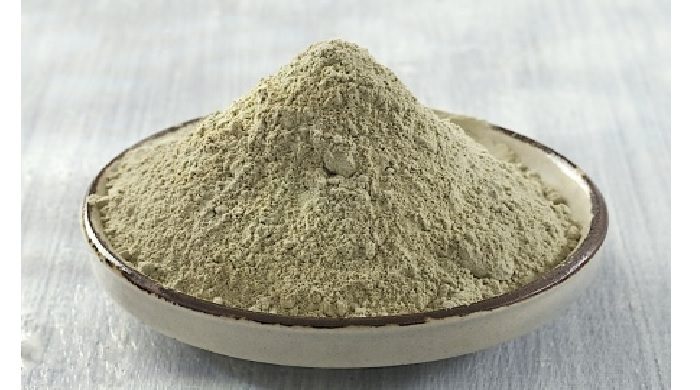Bentonite Clay Uses

Bentonite clay has been used as part of healing remedies because of its ability to adsorb and absorb toxins internally as well as externally. Bentonite clay is a powerful healing clay composed of volcanic ash and consists mostly of silicate minerals that make up ninety-percent of the earth’s crust.
The two main classes of bentonite clay are sodium and calcium bentonite, followed by the less used potassium and aluminum bentonite. The classes are determined by their dominant element.
Bentonite clay has been used successfully as a purifier in traditional medicine for thousands of years and has been used commonly in modern industrial applications. Bentonite clay purifies the body with its anti-bacterial properties[1] and by binding with toxins, fat, and oils, allowing for their removal.
Once bentonite clay comes in contact with water it becomes negatively charged which allows its large flat surfaces to adsorb and absorb positively charged toxins and heavy metals.[2] Bentonite clay also has a high pH which creates an inhospitable environment for disease.[3]{4}
Bentonite clay has also been used in industrial applications to absorb oil, grease, and animal waste, and for purifying water.[5]
Bentonite Clay Uses
Colon And Diverticula Cleanse
Straining to pass short and hard stool results in the rupturing of the intestinal wall and the development of pouches called diverticula. Waste collects in the diverticula, becomes putrid overtime, and becomes difficult to remove.
The indigestible bentonite clay travels through the intestines, attaches to and pulls the waste out of the pouches. It also attaches to waste lining the walls of the intestine and removes it. Bentonite is often taken with psyllium husk, a dietary fiber, to help move it and its collected waste through the intestines for excretion.
Since bentonite clay it not digestible and is not a food source it shouldn’t be consumed on a regular basis. Bentonite clay should be used only as a periodic internal cleanse, or could be used to in emergencies to remove ingested poisons. It is very important to drink plenty of water when consuming bentonite clay because it can absorb many times its weight in water and can lead to constipation.
Treat Digestive Tract Issues
Bentonite clays absorbent properties neutralizes food poisoning, viruses, bacteria, parasites, and food allergies, and reduces stomach irritation and nausea.
Face And Body Mask
A paste consisting bentonite clay and water is applied to the face or entire body to draw out toxins and inflammation in the skin, leaving the skin softened and feeling revitalized.
Skin Care
Bentonite clay paste applied to insect bites, cuts, and burns reduces irritation by drawing out toxins and inflammation. It has been used to treat eczema and psoriasis.
Oral Health
Bentonite clay is highly alkaline and neutralizes acidity in the mouth that leads to tooth decay. It also binds to toxins and bacteria allowing for their removal. Bentonite clay can be added to toothpaste, or can be used as part of a tooth powder for teeth cleansing. Brushing with a combination of bentonite clay, baking soda, and coconut oil is an excellent way to clean teeth and to promote gum health.
Have you ever used bentonite Clay and if so, what are your experiences?
[2] Calcium Bentonite Living Clay
[3] PH and Disease
[4] Bentonite Clay
[5] Hosterman, John W.; Sam H. Patterson (1992). “Bentonite and Fuller’s Earth Resources of the United States”. U.S. Geological Survey Professional Paper 1522 (U.S. Government Printing Office).
Tags: bentonite clay uses, diverticulitis, diverticulosis






